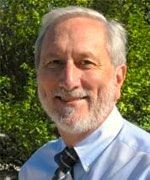
Don Boesch
Principal Investigator and President
University of Maryland Center for Environmental Science
website
Climate Science Specialties: Earth Systems, Policy
Don Boesch is a Professor of Marine Science and President of the University of Maryland Center for Environmental Science (UMCES). He is a biological oceanographer who has conducted research in coastal and continental shelf environments along the Atlantic Coast and in the Gulf of Mexico, eastern Australia and the East China Sea. He has published two books and more than 90 papers on marine and environmental science and policy. Presently his research focuses on the use of science in ecosystem management and in climate change adaptation. Dr Boesch is active in extending knowledge to environmental and resource management at regional, national and international levels. He led the team producing a comprehensive assessment of climate change impacts in Maryland, was a contributing author to Climate Change Impacts in the United States, and a member of the National Academy of Sciences committee that produced the report, America's Climate Choices.
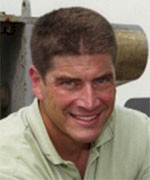
Chris Sommerfield
Associate Professor
University of Delaware
website
Climate Science Specialties: Oceanography
Chris' research involves at-sea sampling and laboratory work to characterize transport pathways of sedimentary matter from diverse sources to depositional sinks. A specialty is use of naturally occurring and anthropogenic radionuclides as particle tracers and chronometers. Measured distributions of radionuclides in estuarine and coastal waters convey unique information on particle sources, residence times, and rates of accumulation. This information is used to determine historical patterns and rates of sedimentation, develop sediment budgets, and to validate numerical models of material transport.

Cindy Parker
Assistant Professor
Johns Hopkins University
website
Climate Science Specialties: Health
Cindy works on climate change policy change initiatives for the state of Maryland and nationally. She is also interested in how global environmental issues such as climate change are communicated in such a way as to motivate behavior change. The interplay between peak oil and climate change is another area of interest as is working with communities to solve local and global environmental problems and sustainable development issues.
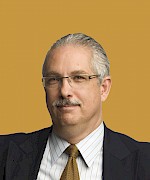
Antonio Busalacchi
Professor & Director Earth System Science Interdisciplinary Center
University of Maryland College Park
website
Climate Science Specialties: Climate Modeling, Oceanography
Education Specialties: School/University Partnerships, P-20 STEM Education Policy, College Completion Policy, Academic Innovation
Antonio Busalacchi is the Director of ESSIC, a Professor in the Department of Atmospheric & Oceanic Science, and the Chair of the University of Maryland Council on the Environment. Tony came to ESSIC in 2000, after serving as Chief of the NASA/Goddard Laboratory for Hydrospheric Processes. His interests include the study of climate variability and prediction, tropical ocean modeling, ocean remote sensing, and data assimilation. His research in these areas has supported a range of international and national research programs dealing with global change and climate, particularly as affected by the oceans. Presently, he serves as Chairman of the Joint Scientific Committee for the World Climate Research Programme and Chairman of the NAS/NRC Board on Atmospheric Sciences and Climate. He is a Fellow of the American Meteorological Society (AMS), American Geophysical Union, and in 2006 was selected by the AMS to be the Walter Orr Roberts Interdisciplinary Science Lecturer.
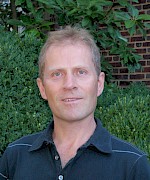
Luc Claussens
Assistant Professor, Department of Geography
University of Delaware
Climate Science Specialties: Earth Systems, Freshwater Systems, Atmosphere, Terrestrial Systems, Geography
Luc Claussens is an assistant professor in the Department of Geography at the University of Delaware. He studies the interactions between hydrology and ecosystem processes, particularly in the effect of changes in land-use and climate, and the development of adaptive management practices. He has worked in hydrology (watersheds, evapotranspiration, land-atmosphere interactions), biogeochemistry (nutrient loading and processing) and water resources engineering (flood control, water conservation, irrigation).
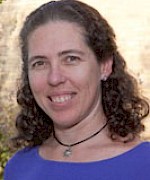
Victoria Coles
Research Associate Professor
University of Maryland Center for Environmental Science
Climate Science Specialties: Climate Modeling, Coastal Systems, Oceanography
Victoria Coles is a research associate at the University of Maryland Center for Environmental Science. Her areas of expertise include observation and modeling of large scale ocean circulation and estuarine circulation, climate forcing on the regional and global scales and biogeochemical tracer distribution and ecosystem modeling.
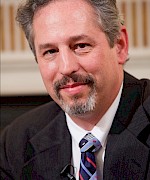
Jim Corbett
Professor, Marine Policy
University of Delaware
Climate Science Specialties: Energy, Policy, Coastal Systems, Atmosphere
James Corbett is a Professor in the School of Marine Science and Policy at the University of Delaware. He studies environmental impact of shipping and has particular interested in climate change, freight transportation, international and domestic transportation and pollution policy, and energy and environmental solutions for freight and multimodal transportation. He is well known for his groundbreaking research on air pollution generated by maritime cargo shipping.
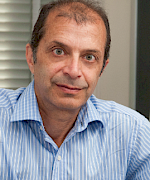
Jeremy Firestone
Professor, Marine Policy
University of Delaware
Climate Science Specialties: Energy, Coastal Systems, Policy
Jeremy Firestone is a Professor of Legal Studies in the College of Earth, Ocean, and Environment at the University of Delaware. He is both a policy scientist and an attorney. He particularly focuses on the feasibility, environmental impacts, capacity and public support/opposition related to offshore wind farms.
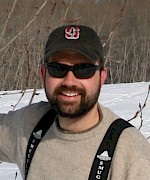
Matthew Fitzpatrick
Assistant Professor
University of Maryland Center for Environmental Science
Climate Science Specialties: Climate Modeling, Terrestrial Systems
Matt Fitzpatrick is an Assistant Professor at the University of Maryland Center for Environmental Science. He is a macroecologist with a primary emphasis on the application and development of novel modeling techniques to study patterns of biodiversity, species distributions, and biological invasions in the context of climate change.
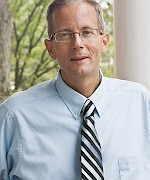
Dan Leathers
Professor, Geography
University of Delaware
Climate Science Specialties: Geography, Earth Systems, Policy, Terrestrial Systems, Adaptation
Dan Leathers is a Professor and Chair of the Department of Geography and Environmental Science Program at the University of Delaware. He is the co-director of the Delaware Environmental Observing System and also the former Delaware State Climatologist. His research interests understanding the role of snow cover in the global climate system, the influence of land-surface changes (natural and human induced) on regional climates, environmental monitoring, environmental policy and resource management and sustainability of global systems, especially in the context of climate variation, climate change and land-surface surface changes.

Ming Li
Professor
University of Maryland Center for Environmental Science
Climate Science Specialties: Oceanography
Ming Li is a Professor of Physical Oceanography University of Maryland Center for Environmental Science. He studies geophysical fluid dynamics, ocean mixing processes, numerical ocean modeling, biological/physical interactions, and marine pollution.
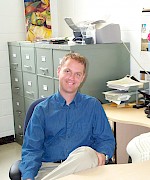
Brian Needelman
Associate Professor, Environmental Science and Technology
University of Maryland College Park
Climate Science Specialties: Sea Level Rise, Coastal Systems, Policy
Brian Needelman is an Associate Professor in the Department of Environmental Science and Technology in the College of Agriculture and Natural Resources at the University of Maryland, College Park. He studies soil formation processes in tidal wetland soils including organic matter accumulation and decomposition, greenhouse gas fluxes, wetland elevation dynamics and sustainability in the face of sea-level rise and other climate change factors, and carbon crediting schemes.

Matthew Oliver
Assistant Professor, Oceanography
University of Delaware
Climate Science Specialties: Oceanography, Geography
Matthew Oliver is an assistant professor of oceanography in the College of Earth, Ocean, and Environment at the University of Delaware. He studies biological oceanography and biogeography, particularly to pinpoint where ocean organisms live and how their populations and other factors influence their distributions. He utilizes remote sensing tools in his work, including satellite imaging and tracks, among other factors, the impact of climate change on sea temperatures and ocean processes.

Ross Salawitch
Professor, Department of Atmospheric and Oceanic Sciences
University of Maryland College Park
Climate Science Specialties: Atmosphere, Human and Urban Systems, Climate Modeling
Ross Salawitch is a Professor in the Department of Atmospheric and Oceanic Sciences in the College of Computer, Mathematical and Natural Science at the University of Maryland, College Park. He studies the quantification of the effect of human activity on atmospheric composition. His research team develops models that are compared to observations obtained from orbital, air-borne, balloon, and ground based platforms and focuses on stratospheric ozone depletion and recovery, air quality, climate change, and the global carbon cycle.
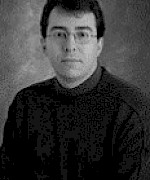
Fabrice Veron
Associate Director and Associate Professor, Physical Ocean Science and Engineering
University of Delaware
Climate Science Specialties: Oceanography, Energy
Fabric Vernon is an Associate Director and Associate Professor of Physical Ocean Science and Engineering in the College of Earth, Ocean, and Environment at the University of Delaware. He studies air-sea interactions, surface turbulence mixing, gravity capillary waves and processes, suspension dynamics of rain, ocean surface infra-red remote sensing, wind wave generation, wave-current interaction, and wave impacts on offshore wind turbines.
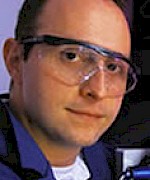
Mark Warner
Associate Professor, Marine Biosciences
University of Delaware
Climate Science Specialties: Oceanography
Mark Warner is an Associate Professor of Marine Biosciences in the College of Earth, Ocean, and Environment at the University of Delaware. He studies the physiological ecology of marine algae, algal invertebrate symbioses, and the biochemical and molecular maintenance and regulation of photosynthesis in relation to changing environmental conditions, including the impact of climate change on phytoplankton.













